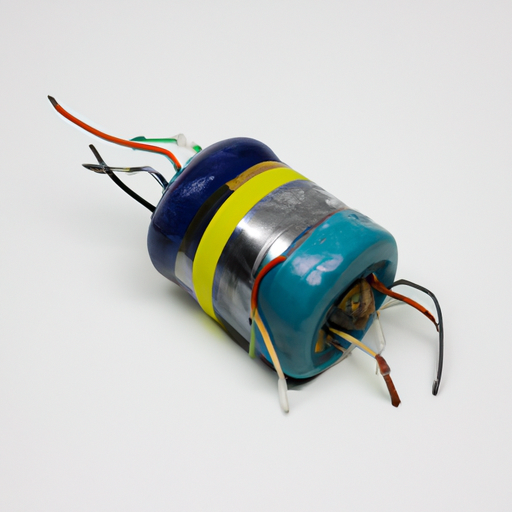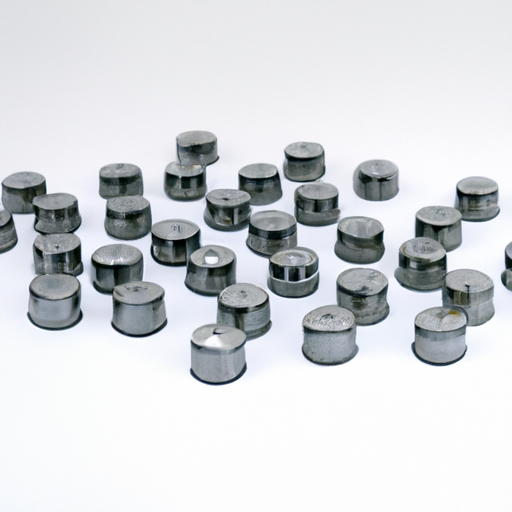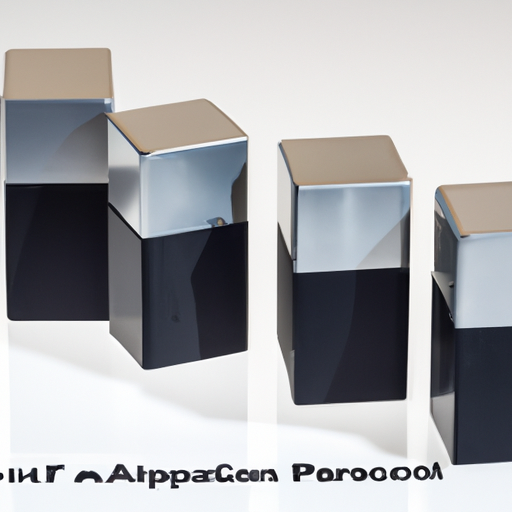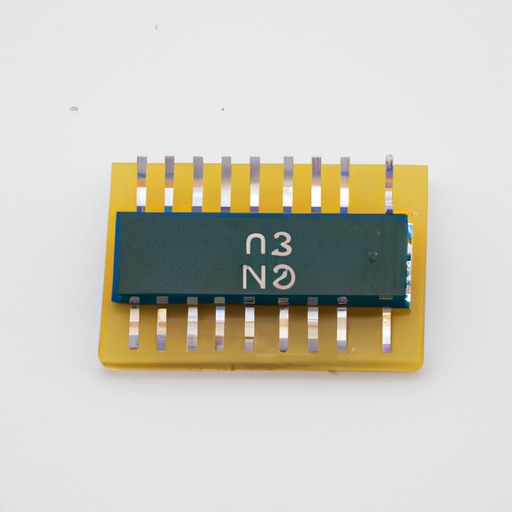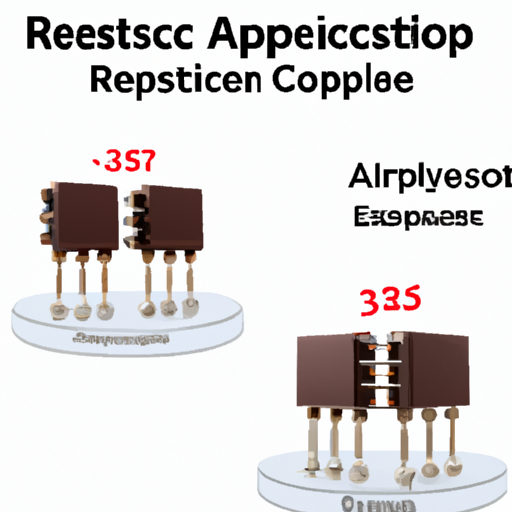What are the product features of fan capacitors?
What are the Product Features of Fan Capacitors?
I. Introduction
A. Definition of Fan Capacitors
Fan capacitors are electrical components that store and release electrical energy in fan systems. They play a crucial role in the operation of various types of fans, including ceiling fans, exhaust fans, and industrial ventilation systems. By providing the necessary phase shift in the electrical current, fan capacitors help to start and run the motor efficiently.
B. Importance of Fan Capacitors in Electrical Systems
In electrical systems, fan capacitors are essential for ensuring that fans operate smoothly and efficiently. They help to improve the performance of the fan motor, reduce energy consumption, and extend the lifespan of the fan. Without the proper functioning of fan capacitors, fans may experience issues such as reduced speed, increased noise, or even complete failure.
C. Overview of the Article
This article will explore the various product features of fan capacitors, including their types, key characteristics, performance attributes, applications, and maintenance tips. Understanding these features is vital for selecting the right capacitor for specific fan systems and ensuring optimal performance.
II. Understanding Fan Capacitors
A. What is a Capacitor?
1. Basic Principles of Capacitance
A capacitor is an electronic component that stores electrical energy in an electric field. It consists of two conductive plates separated by an insulating material, known as a dielectric. When voltage is applied across the plates, an electric field is created, allowing the capacitor to store energy.
2. Role of Capacitors in Electrical Circuits
In electrical circuits, capacitors serve various functions, including filtering, timing, and energy storage. In fan systems, capacitors are primarily used to create a phase shift in the current, which is essential for starting and running the motor efficiently.
B. Types of Fan Capacitors
1. Start Capacitors
Start capacitors provide an initial boost of energy to the motor, helping it to overcome inertia and start spinning. They are typically used in single-phase motors and are designed to disconnect from the circuit once the motor reaches a certain speed.
2. Run Capacitors
Run capacitors remain in the circuit while the motor is running, providing continuous energy to maintain optimal performance. They help improve the efficiency of the motor and reduce energy consumption.
3. Dual Capacitors
Dual capacitors combine the functions of both start and run capacitors in a single unit. They are commonly used in applications where space is limited, providing a compact solution for fan systems.
III. Key Features of Fan Capacitors
A. Voltage Rating
1. Explanation of Voltage Ratings
The voltage rating of a capacitor indicates the maximum voltage it can handle without failing. It is crucial to select a capacitor with a voltage rating that matches or exceeds the voltage of the fan system.
2. Importance of Matching Voltage Ratings
Using a capacitor with an inadequate voltage rating can lead to failure, overheating, or even damage to the fan motor. Therefore, it is essential to ensure that the voltage rating of the capacitor aligns with the specifications of the fan.
B. Capacitance Value
1. Definition of Capacitance
Capacitance is a measure of a capacitor's ability to store electrical energy, expressed in microfarads (µF). The capacitance value is critical in determining how effectively the capacitor can support the fan motor.
2. How Capacitance Affects Fan Performance
The capacitance value directly influences the starting torque and running efficiency of the fan. A capacitor with the correct capacitance value ensures that the motor starts quickly and runs smoothly, enhancing overall performance.
C. Temperature Rating
1. Significance of Temperature Ratings
Temperature ratings indicate the range of temperatures within which a capacitor can operate safely. Capacitors are sensitive to temperature fluctuations, and exceeding their rated temperature can lead to failure.
2. Impact of Temperature on Capacitor Lifespan
High temperatures can accelerate the aging process of capacitors, reducing their lifespan. Selecting capacitors with appropriate temperature ratings for the intended environment is essential for longevity.
D. Physical Size and Form Factor
1. Common Sizes and Shapes
Fan capacitors come in various sizes and shapes, including cylindrical, rectangular, and oval forms. The physical dimensions of the capacitor can affect its compatibility with specific fan models.
2. Importance of Size in Installation
Choosing the right size capacitor is crucial for installation. A capacitor that is too large may not fit in the designated space, while one that is too small may not provide adequate performance.
E. Durability and Lifespan
1. Factors Affecting Durability
The durability of fan capacitors is influenced by factors such as temperature, humidity, and electrical stress. High-quality materials and construction techniques can enhance durability.
2. Expected Lifespan of Fan Capacitors
Typically, fan capacitors have a lifespan ranging from 5 to 10 years, depending on usage and environmental conditions. Regular maintenance and timely replacement can help extend their operational life.
F. Safety Features
1. Built-in Protection Mechanisms
Many fan capacitors come equipped with built-in protection mechanisms, such as fuses or thermal cutoffs, to prevent overheating and electrical failures.
2. Compliance with Safety Standards
Safety standards, such as UL (Underwriters Laboratories) and CE (Conformité Européenne), ensure that capacitors meet specific safety and performance criteria. Choosing capacitors that comply with these standards is essential for safe operation.
IV. Performance Characteristics
A. Efficiency
1. How Capacitors Improve Fan Efficiency
Capacitors enhance the efficiency of fan motors by providing the necessary phase shift in the electrical current. This results in smoother operation and reduced energy consumption.
2. Energy Consumption Considerations
Using high-quality capacitors can lead to significant energy savings over time, making them a cost-effective choice for both residential and industrial applications.
B. Reliability
1. Factors Contributing to Reliability
The reliability of fan capacitors is influenced by their construction quality, materials used, and adherence to safety standards. High-quality capacitors are less likely to fail and provide consistent performance.
2. Importance of Quality in Performance
Investing in reliable capacitors ensures that fans operate efficiently and reduces the likelihood of unexpected failures, which can lead to costly repairs or replacements.
C. Noise Levels
1. Impact of Capacitors on Noise Reduction
Capacitors can help reduce noise levels in fan systems by ensuring smooth operation and minimizing vibrations. This is particularly important in residential and commercial settings where noise can be a concern.
2. Comparison of Different Capacitor Types
Different types of capacitors may have varying impacts on noise levels. For instance, run capacitors tend to provide quieter operation compared to start capacitors, which are only engaged during the initial startup phase.
V. Applications of Fan Capacitors
A. Residential Fans
1. Ceiling Fans
In ceiling fans, capacitors are essential for starting the motor and maintaining efficient operation. They help ensure that the fan runs smoothly and quietly.
2. Exhaust Fans
Exhaust fans rely on capacitors to provide the necessary power for effective ventilation. Properly functioning capacitors enhance the performance and longevity of these fans.
B. Industrial Fans
1. Ventilation Systems
In industrial settings, ventilation systems often use large fans that require robust capacitors to handle high power demands. The right capacitors ensure efficient airflow and energy savings.
2. Cooling Towers
Cooling towers utilize fan capacitors to maintain optimal performance in cooling systems. Reliable capacitors are crucial for the efficient operation of these systems.
C. HVAC Systems
1. Role in Heating and Cooling Systems
In HVAC systems, fan capacitors are vital for the operation of blowers and compressors. They help maintain consistent airflow and temperature control.
2. Importance in Energy Efficiency
Selecting the right fan capacitors can significantly impact the energy efficiency of HVAC systems, leading to lower operating costs and reduced environmental impact.
VI. Maintenance and Troubleshooting
A. Signs of a Failing Capacitor
1. Common Symptoms
Common symptoms of a failing capacitor include unusual noises, reduced fan speed, or the fan not starting at all. Recognizing these signs early can prevent further damage.
2. Diagnostic Techniques
Diagnostic techniques, such as using a multimeter to measure capacitance, can help identify failing capacitors. Regular inspections can also aid in early detection.
B. Maintenance Tips
1. Regular Inspection
Regularly inspecting fan capacitors for signs of wear or damage can help ensure optimal performance and prevent unexpected failures.
2. Replacement Guidelines
When replacing capacitors, it is essential to choose the correct type and specifications to match the fan system. Following manufacturer guidelines can help ensure proper installation and performance.
VII. Conclusion
A. Recap of Key Features
Fan capacitors are critical components in various fan systems, providing essential functions such as starting and running the motor efficiently. Key features include voltage ratings, capacitance values, temperature ratings, physical size, durability, and safety features.
B. Importance of Choosing the Right Fan Capacitor
Selecting the right fan capacitor is crucial for ensuring optimal performance, energy efficiency, and longevity of the fan system. Understanding the specific requirements of the fan and the characteristics of the capacitor can lead to better outcomes.
C. Final Thoughts on Fan Capacitors in Electrical Systems
In conclusion, fan capacitors play a vital role in the functionality of electrical systems. By understanding their features and applications, users can make informed decisions that enhance the performance and reliability of their fan systems.
VIII. References
A. Suggested Reading
- "Understanding Capacitors: A Comprehensive Guide"
- "The Role of Capacitors in Electrical Engineering"
B. Industry Standards and Guidelines
- Underwriters Laboratories (UL) Standards
- Conformité Européenne (CE) Guidelines
C. Manufacturer Resources
- Manufacturer websites for specific capacitor specifications and installation guides.
This comprehensive overview of fan capacitors highlights their importance in electrical systems and provides valuable insights for selecting and maintaining these essential components.

